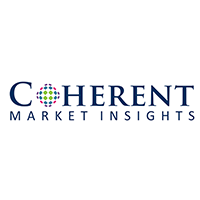Monoclonal Antibody Therapeutics Market Development and Growth Analysis with Key Competitor Analysis: Pfizer, Inc., Novartis International AG, Amgen, Inc., Sanofi S.A., M

Seattle, WA -- (SBWire) -- 11/06/2019 --Monoclonal antibody therapy is a form of immune therapy that utilizes monoclonal antibodies (mAb) to combine monospecific antibodies to particular protein or cell. Monoclonal antibodies are used to treat inflammatory, cancer, and other diseases under the U.S. Food & Drug Administration (FDA)'s observation. There are four types of monoclonal antibodies, depending on the source such as human, chimeric, murine, and humanized. Murine antibodies are completely derived from a murine source, while chimeric antibodies comprised of variable regions from murine origin and constant regions from human origin.
Furthermore, humanized antibodies are obtained from human source with a small part of a mouse or rat monoclonal antibody, while human antibodies are derived from human source. Monoclonal antibodies (for cancer) are further classified on the basis of their functions such as chemo labeled antibodies, radiolabeled antibodies, and biospecific monoclonal antibodies. Commercially available monoclonal antibodies include, Iplimumab, Nivolumab, Rituximab, Blinatumomab, Proleukin, Gardasil, and Kymriah.
Get Request Sample from Industry Experts @ https://www.coherentmarketinsights.com/insight/request-sample/2403
The global monoclonal antibody therapeutics market was valued at US$ 95,560.5 million in 2017, and is expected to witness a robust CAGR of 6.9% over the forecast period (2018–2026).
Increasing approvals for novel monoclonal antibodies and their launches in developed countries are expected to drive global monoclonal antibody therapeutics market growth during the forecast period. Key players in the market are focused on gaining product approvals from regulatory authorities and launching new therapies in the market. For instance, in 2015, Johnson & Johnson received the U.S. Food and Drug Administration (FDA) approval for Darzalex, which is indicated for multiple myeloma. Similarly, in 2017, Roche received the U.S. FDA approval for TECENTRIQ (atezolizumab), which was indicated for the treatment of people with locally advanced or metastatic urothelial carcinoma (mUC) who are not eligible for cisplatin chemotherapy.
Moreover, approvals to several combination therapies is expected to boost the global monoclonal antibody therapeutics market growth over the forecast period. For instance, in 2017, Darzalex (daratumumab) in combination with pomalidomide and dexamethasone received the U.S. FDA approval, indicated for patients suffering from multiple myeloma. Moreover, different monoclonal antibodies with unique mechanism of actions have been approved over the past few years, which work on immune checkpoints such as CTLA-4, PD-1, and PD-L1.
Get PDF Brochure of Research Report @ https://www.coherentmarketinsights.com/insight/request-pdf/2403
Key players in the market are involved in research and development activities and have found success, which is expected to drive the market growth in the near future. Success of popular monoclonal antibodies such as Avastin, Herceptin, and Rituxan (revenues as US$ 6.8 Bn, US$ 7.1 Bn, and US$ 5.9 Bn respectively in 2017 globally) has spurred manufacturers' interest in these therapies. Furthermore, key players in the market are adopting various growth strategies such as partnerships, collaborations, mergers, and acquisitions, in order to gain competitive edge in the market.
For instance, in 2016, AbbVie acquired Stemcentrx, thereby adding rovalpituzumab tesirine (Rova-T) to its product portfolio in oncology segment. Cancer treatment (various types) is at the forefront of the monoclonal antibody research as leading manufacturers are involved in development of these drugs for cancer treatment. For instance, manufacturers such as Amgen, Inc. (e.g. Tezepelumab and others) and Novartis International AG (e.g. Ofatumumab and others) have several monoclonal antibody programs in the pipeline.
However, high costs of these products is a major concern (in regions with underdeveloped reimbursement facilities) in the healthcare system. Thus, to address this problem, manufacturers are adopting biosimilar products, that would offer more affordable treatment. Biosimilars cost much lower than the original products as the cost of development is relatively low. Furthermore, most of the available monoclonal antibody therapeutics (cancer treatments) are expected to lose patent protection by 2020 and some by 2025. For instance, drugs such as Herceptin and Avastin are expected to lose patent protection in 2019. Therefore, such factors are expected to hinder the global monoclonal antibody therapeutics market growth over the forecast period.
Key players involved in the global monoclonal antibody therapeutics market are Pfizer, Inc., Novartis International AG, Amgen, Inc., Sanofi S.A., Merck & Co., Inc., GlaxoSmithKline Plc., F. Hoffmann-La Roche Ltd., AbbVie, Inc., Eli Lilly and Company, and Bristol-Myers Squibb Company.
Inquire about Discount on this Report @ https://www.coherentmarketinsights.com/insight/request-discount/2403
Media Relations Contact
Mr. Raj Shah
CEO
Coherent Market Insights
+1 02067016702
https://www.coherentmarketinsights.com/insight/request-sample/2403
View this press release online at: http://rwire.com/1264375